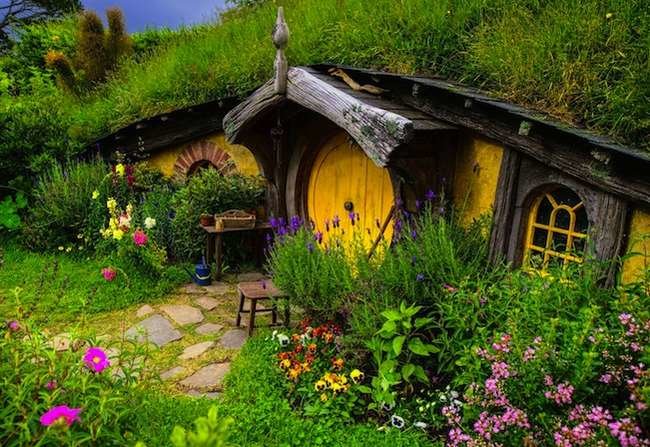

We may earn revenue from the products available on this page and participate in affiliate programs. Learn More ›
Home Advice You Can Trust
Tips, tricks & ideas for a better home and yard, delivered to your inbox daily.
By signing up you agree to our Terms of Service and Privacy Policy.
The Original Hobbit Hole
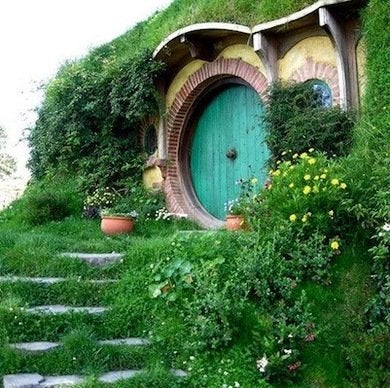
Ever since JRR Tolkien placed his diminutive characters in houses built into the ground, underground dwellings have been nicknamed Hobbit Houses. Whether or not these homes resemble Bilbo’s famous house in the Shire, earth sheltering was around long before we first heard about Frodo and the Ring, and its environmental benefits are especially appealing today.
Chinese Yaodong
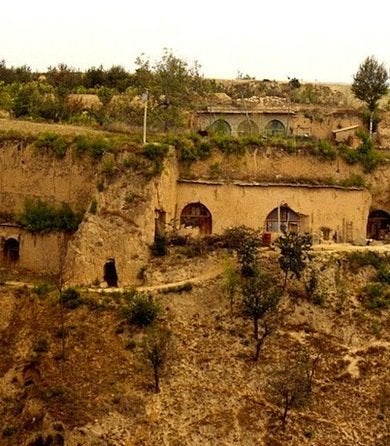
people.ku.edu
Typical to Northern China, this style of carving houses into the hillside, called yaodong, dates back to the second millennium BC and is still employed today. Since any change in the temperature of the dense earth occurs very slowly between seasons, earth shelters such as these remain temperate year-round.
Tunisian Ground Dwellings
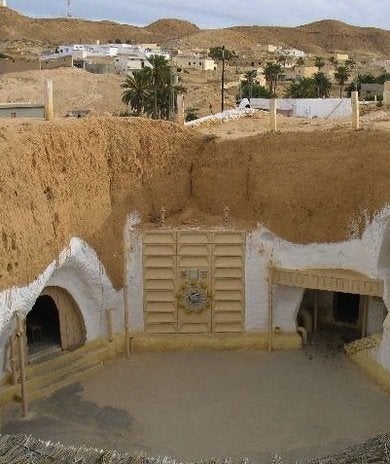
While no one knows exactly when the tiny underground Tunisian village of Matmata was formed, it found international fame in 1976 when its Hotel Sidi Driss was chosen as a filming location for Star Wars. (In the film, the hotel appeared as Luke Skywalker’s childhood home on Tatooine.) Subterranean construction keeps the Berbers who live here cool beneath the extreme desert sun and provides shelters from wind storms.
Icelandic Turf Houses
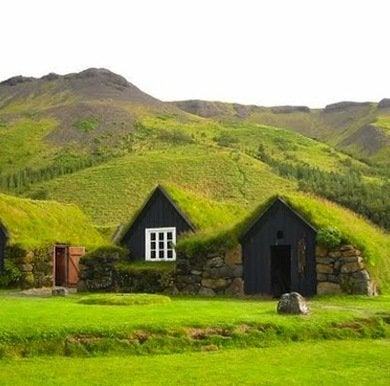
For over 1,000 years, Iceland has been constructing these turf houses, which blend into the landscape and capitalize on nature’s insulation. While similar constructions in Norway, Scotland, Ireland and Greenland were only built by those who couldn’t afford anything else, turf houses in Iceland were even built by tribe chiefs.
French Troglodyte Homes
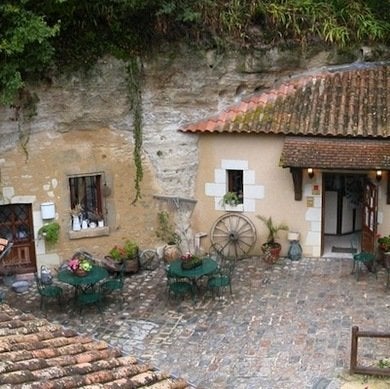
Domesticated cave dwellings are usually called “troglodyte homes,” and the Loire River Valley in France is full of them. Excessive quarrying of the local rock in the 11th century created cavities in the hills and plains, and not surprisingly, people moved in… and never moved out.
Iranian Troglodyte Homes
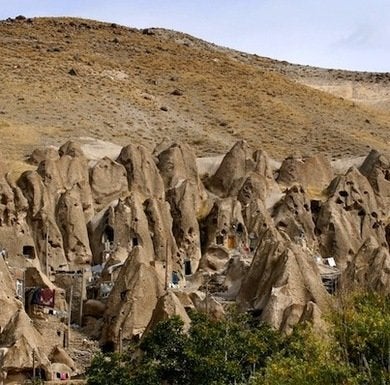
The Iranian village of Kandovan is usually described as a “gigantic termite colony”. Volcanic rock formed a small group of cone-like caves that eventually attracted human inhabitants. The small town, like many of the other underground dwellings on this list, has become a veritable tourist destination.
Australia's Coober Pedy
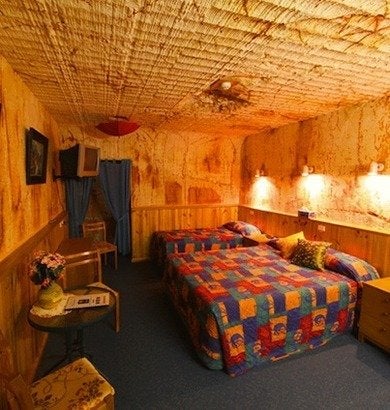
Founded in 1915, the small Australian town of Coober Pedy is known for two things: opal mining and the below-ground homes in which a large portion of its residents live. Coober Pedy means “white man’s hole” in a local aboriginal language, but when extreme daytime temperatures reach up to 120 degrees Fahrenheit in summer, seeking refuge below the surface seems only natural.
The Door County Mushroom House Mystery
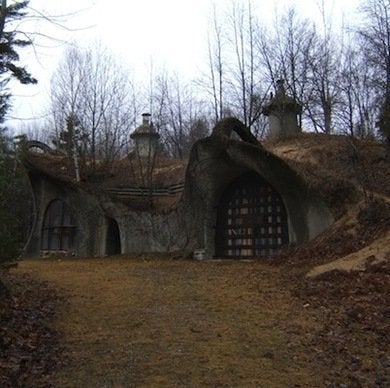
imgur.
The most mysterious hobbit hole of all is this more modern construction in Whitefish Bay, WI. Little is known about the earth-bermed dwelling, but its whimsical design has earned it the nickname “The Door County Mushroom House”. We don’t know who built it, but we do know it wouldn’t look out of place on a The Lord of the Rings set.
Earth Houses in Switzerland
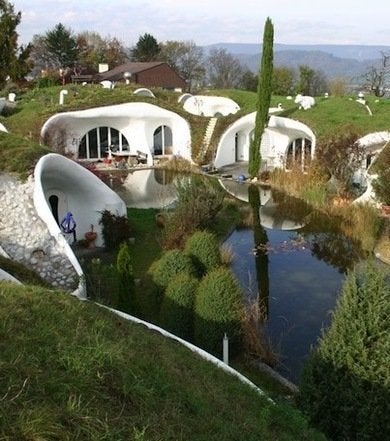
Earth shelters have come a long way over the years, and some—like the Earth House Estate Lättenstrasse in Switzerland—marry the comfort of a modern home with the low environmental impact of an underground abode. The estate includes nine separate homes, an artificial lake, a subterranean parking lot and room to grow vegetation. Each building uses “only a third of the energy a normal home would consume”.
Underground Hole in the Alps
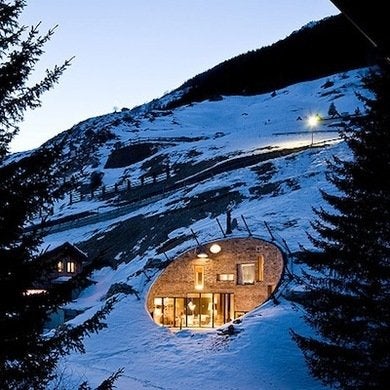
Buried almost completely into the side of a hill, this Alpine home built by a Dutch architecture firm features both subterranean insulation and jaw-dropping, panoramic views. It’s so integrated into the mountain terrain, a passerby might not even know he’s walking over the roof of someone’s home!
The Hobbit House in the Cotswolds
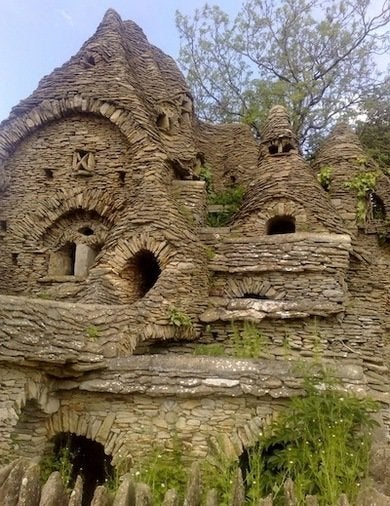
While it is completely above-ground, the fantastical construction of this sheep shed in the Cotswolds, England, has earned it the local nickname “Hobbit House”. Built without permission by a local artist, the sprawling construction took nearly ten years to build. Abandoned in the 1990s, it’s an unconventional tourist stop today.
Underground House in Northern England
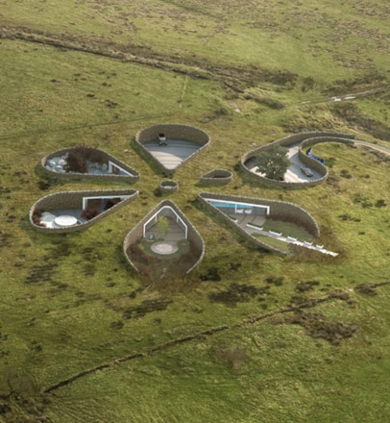
Proving the UK loves its hobbit holes, this completely subterranean residence is also the first zero-carbon property in North West England. The Bolton Eco House is “designed to use less energy than it creates. A ground source heat pump, photovoltaic panels, and a wind turbine will generate on-site renewable energy.”
Hand-Built Earth Shelter in Wales
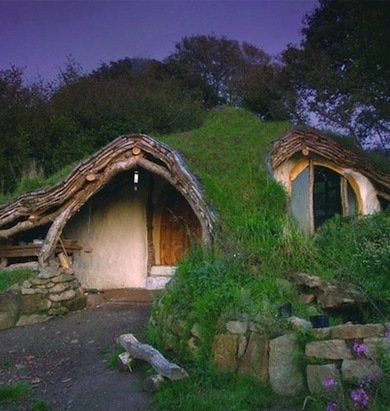
One couple in Wales decided to go full-Shire and build themselves an earth shelter out of found materials. Four months and $5,000 later, they had a fully functional, low-impact hobbit house. “There are just a couple of solar panels—just enough for for lighting, music, and computing. It’s a simple life.” Exactly what Bilbo wanted (at least before his Unexpected Journey)!

Everything You Need for a Lush and Healthy Lawn
Keeping your grass green and your plants thriving doesn’t just take a green thumb—it starts with the right tools and supplies.